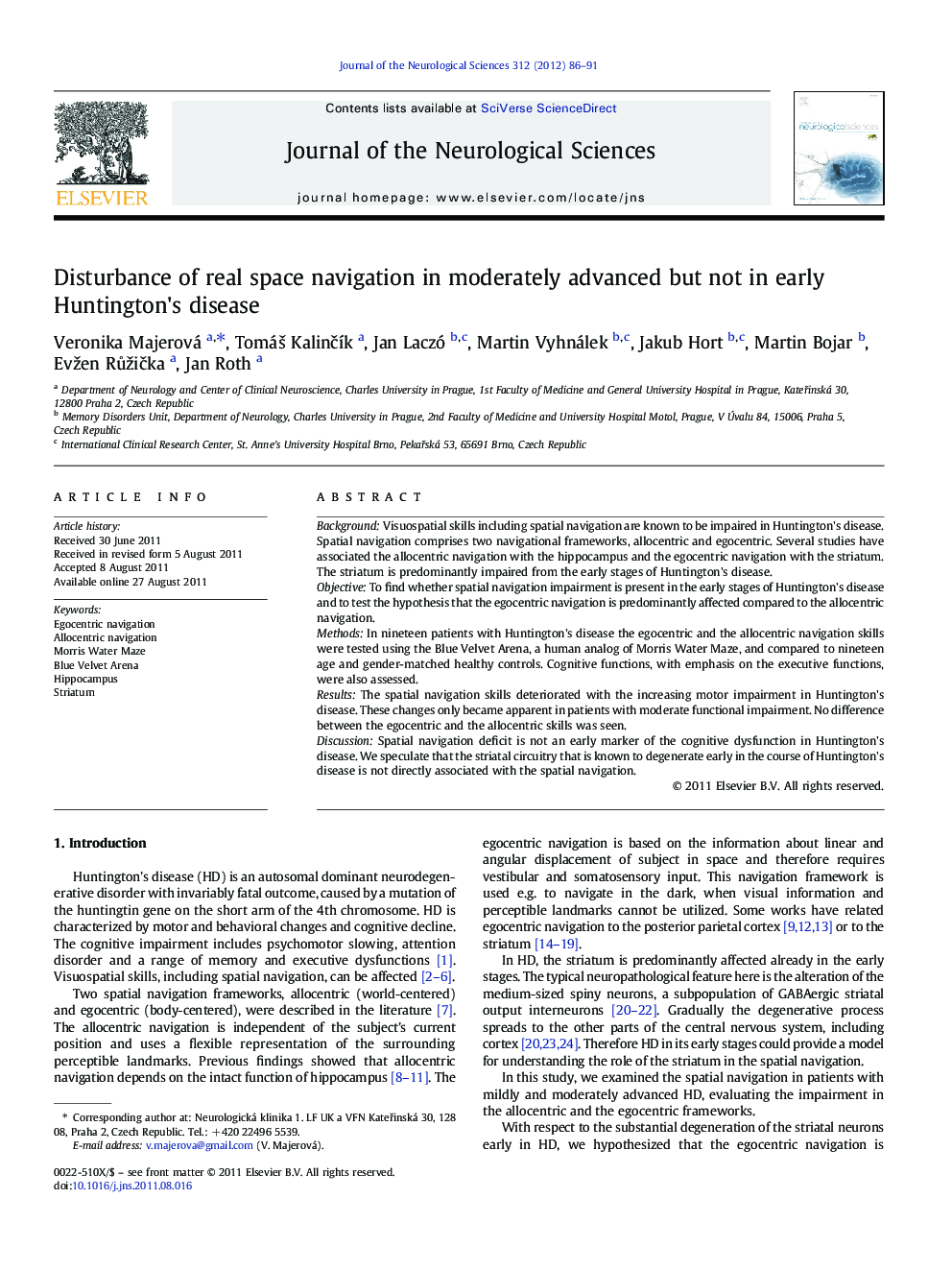| Article ID | Journal | Published Year | Pages | File Type |
|---|---|---|---|---|
| 1914050 | Journal of the Neurological Sciences | 2012 | 6 Pages |
BackgroundVisuospatial skills including spatial navigation are known to be impaired in Huntington's disease. Spatial navigation comprises two navigational frameworks, allocentric and egocentric. Several studies have associated the allocentric navigation with the hippocampus and the egocentric navigation with the striatum. The striatum is predominantly impaired from the early stages of Huntington's disease.ObjectiveTo find whether spatial navigation impairment is present in the early stages of Huntington's disease and to test the hypothesis that the egocentric navigation is predominantly affected compared to the allocentric navigation.MethodsIn nineteen patients with Huntington's disease the egocentric and the allocentric navigation skills were tested using the Blue Velvet Arena, a human analog of Morris Water Maze, and compared to nineteen age and gender-matched healthy controls. Cognitive functions, with emphasis on the executive functions, were also assessed.ResultsThe spatial navigation skills deteriorated with the increasing motor impairment in Huntington's disease. These changes only became apparent in patients with moderate functional impairment. No difference between the egocentric and the allocentric skills was seen.DiscussionSpatial navigation deficit is not an early marker of the cognitive dysfunction in Huntington's disease. We speculate that the striatal circuitry that is known to degenerate early in the course of Huntington's disease is not directly associated with the spatial navigation.
